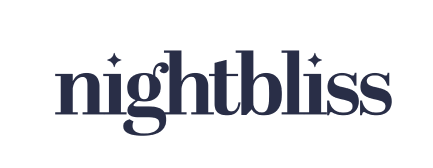Article: What is OEKO-TEX Standard 100
What is OEKO-TEX Standard 100
The OEKO-TEX Standard 100 certification is a globally recognized and independent testing and certification system for textile products. Here’s a detailed breakdown of what it entails:
Overview:
• Certification Body: OEKO-TEX Association, consisting of 18 independent research and test institutes in Europe and Japan.
• Scope: Applies to raw, semi-finished, and finished textile products at all processing levels, as well as accessory materials used.
Key Features:
1. Testing for Harmful Substances:
○ Criteria: Textiles are tested for harmful chemicals and substances that may pose a risk to human health. This includes regulated and non-regulated substances, which may be harmful.
○ Testing Parameters: Includes tests for legally banned substances, chemicals known to be harmful but not yet regulated, and parameters for preventive health care.
2. Product Classes:
○ Class I: Textiles for babies and toddlers up to 3 years old (e.g., underwear, rompers, bedding, etc.).
○ Class II: Textiles that have a large part of their surface in direct contact with the skin (e.g., underwear, bed linen, T-shirts).
○ Class III: Textiles that have little or no contact with the skin (e.g., jackets, coats).
○ Class IV: Furnishing materials (e.g., table linen, curtains, upholstery fabrics).
3. Testing Criteria:
○ Substances Prohibited by Law: Such as azo dyes, formaldehyde, pentachlorophenol, cadmium, nickel, etc.
○ Chemicals Harmful to Health: Such as pesticides, chlorinated phenols, phthalates, tin-organic compounds, etc.
○ Parameters for Health Protection: Such as color fastness, pH value, etc.
4. Compliance:
○ Continuous Monitoring: Certified products are subject to regular re-testing and monitoring.
○ Traceability: Ensures that certified products are traceable back to their raw materials.
Benefits:
• Consumer Confidence: Ensures consumers that the textile products are safe and free from harmful substances.
• Market Advantage: Helps manufacturers and retailers differentiate their products in the market.
• Sustainability: Encourages environmentally friendly and sustainable production practices.
In summary, the OEKO-TEX Standard 100 certification provides assurance that textile products have been tested for harmful substances and are safe for human use, promoting consumer confidence and safety in textile products.
Overview:
• Certification Body: OEKO-TEX Association, consisting of 18 independent research and test institutes in Europe and Japan.
• Scope: Applies to raw, semi-finished, and finished textile products at all processing levels, as well as accessory materials used.
Key Features:
1. Testing for Harmful Substances:
○ Criteria: Textiles are tested for harmful chemicals and substances that may pose a risk to human health. This includes regulated and non-regulated substances, which may be harmful.
○ Testing Parameters: Includes tests for legally banned substances, chemicals known to be harmful but not yet regulated, and parameters for preventive health care.
2. Product Classes:
○ Class I: Textiles for babies and toddlers up to 3 years old (e.g., underwear, rompers, bedding, etc.).
○ Class II: Textiles that have a large part of their surface in direct contact with the skin (e.g., underwear, bed linen, T-shirts).
○ Class III: Textiles that have little or no contact with the skin (e.g., jackets, coats).
○ Class IV: Furnishing materials (e.g., table linen, curtains, upholstery fabrics).
3. Testing Criteria:
○ Substances Prohibited by Law: Such as azo dyes, formaldehyde, pentachlorophenol, cadmium, nickel, etc.
○ Chemicals Harmful to Health: Such as pesticides, chlorinated phenols, phthalates, tin-organic compounds, etc.
○ Parameters for Health Protection: Such as color fastness, pH value, etc.
4. Compliance:
○ Continuous Monitoring: Certified products are subject to regular re-testing and monitoring.
○ Traceability: Ensures that certified products are traceable back to their raw materials.
Benefits:
• Consumer Confidence: Ensures consumers that the textile products are safe and free from harmful substances.
• Market Advantage: Helps manufacturers and retailers differentiate their products in the market.
• Sustainability: Encourages environmentally friendly and sustainable production practices.
In summary, the OEKO-TEX Standard 100 certification provides assurance that textile products have been tested for harmful substances and are safe for human use, promoting consumer confidence and safety in textile products.

